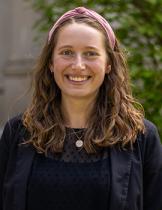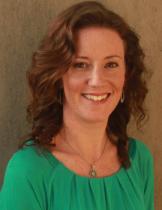
Applying to PhD programs: Advice from J-PAL affiliates

This post is part of a blog series offering advice for prospective PhD students. The blog post “Is a PhD right for me?” lays out a series of questions and tips to help potential candidates decide whether to pursue a PhD in the first place. This post covers advice on how to write a great PhD application once the decision to apply has been made. The next post in this series will include advice from J-PAL postdocs and staff with PhDs on how to choose a PhD program that is right for you.
Most PhD applications for a Fall 2024 start date are due by the end of this year. To help prospective students navigate the application process, J-PAL Africa recently hosted two webinars inviting J-PAL affiliated researchers with experience serving on admissions committees from North American and European universities to share their advice for a successful application. While the webinars were focused on applicants from the African continent, much of the advice can apply more broadly. In this post, we summarize our main takeaways from the two webinars.
Where to apply
Selecting the right programs to apply to is a crucial decision that can streamline the application process and pave the way for a successful academic journey. J-PAL affiliates noted what to keep in mind when deciding where and how broadly to apply:
- Apply broadly but only to programs you are certain you want to attend. A PhD is hard and has a high opportunity cost, so while it is advised to apply to many programs, apply to programs where you know you would accept the offer if it were the only offer you received.
- If application fees are a barrier to applying, request waivers when possible. Recognizing the financial burden applications can impose on prospective students, many universities take steps to alleviate the cost by offering application fee waivers. Although eligibility criteria differ by university, waivers are typically needs- or background-based (e.g., educational pipeline programs for underrepresented groups).
- Look for departments with strengths in multiple fields. Your interests may evolve as you progress through your PhD journey—finding a department with expertise across different fields will give you more flexibility to change your research area or track during your PhD.
Showcasing your quantitative skills
Admissions committees for economics programs typically consider quantitative preparation as one of the most important qualifications for a PhD. Showcasing your quantitative skills clearly can ensure your application makes it through the first screening round.
- Your application should include a complete account of your quantitative background. Being specific about the quantitative courses you have taken (e.g., noting the textbooks used) can give the admissions committee context on the quality of the courses—especially if you took the courses at a university the committee is less familiar with or if you have taken quantitative courses outside of traditional education.
- Plan to practice extensively for the GRE. The GRE score is often one of the first metrics considered when reviewing applications, so it is important that your quant score is strong. However, the GRE is tricky because it doesn’t just require technical skills but also test-taking skills. Specifically, one big challenge of the GRE is the timing. Using online resources to practice and test yourself in different settings and under the required circumstances can help strengthen your familiarity with the format.
- Retake the GRE if your quantitative score is insufficient. While formal requirements vary by university, economics programs often require a GRE score above the 80th or 85th percentile, and top-ranked programs often expect a score above the 90th or 95th percentile. It is possible to take the GRE multiple times, and it is up to you which score to share with the schools. Therefore, consider taking the test early so you have time to take it again if it doesn’t go as you hoped. If costs are a concern, research whether there are waivers that can help subsidize test fees.
- Consider taking the GRE even when it is not required. Your GRE score can be one of the most efficient ways to signal your quantitative ability, especially for students whose undergraduate and master’s programs did not have a strong mathematical focus, or students applying from schools where the grading system will be less familiar to admissions committees (e.g. if you studied outside of the US and are applying to US PhD programs). There is, therefore, value in sharing a strong GRE score even when the GRE is not required.
Letters of recommendation
Letters of recommendation should be personalized to you as a candidate and must expand on your unique skills and abilities beyond the experiences listed on your CV. Put careful thought into whom you choose to write your letter.
- Your letter of recommendation needs to speak to your research capacity. Ideally, your letter should be written by someone who has a PhD and is familiar with the research process, which can provide additional credibility to your application. It is also important that your letter writer has experience working with you in a research setting and can speak to your individual strengths and abilities.
- Identify your strengths and weaknesses as a candidate, and ask for a letter of recommendation from someone who can best balance them. Ask your referees directly if they would be able to write you a strong recommendation, and give them the opportunity to say no. If your letter writer is not familiar with writing a recommendation letter, you can share examples of letters or match them to someone more experienced with the process.
Statement of Purpose
A statement of purpose (SOP) is your most important opportunity to show your analytical potential beyond what is listed on your CV, especially if you come from a lesser-known program. Institutions have different requirements regarding your SOP and will sometimes request that a personal and research statement be submitted as separate documents. The research statement (or proposal) should cover the type of research you are interested in pursuing; a personal statement can help build a narrative for your motivations and explain why you are a good fit for the particular program you are applying to.
- Use your research statement to showcase your analytical and critical thinking skills. Your research statement is an opportunity to show your originality and ability in your approach. While not all universities require you to apply with a fully formed research question, and while you are not obligated to execute the proposed research question during the PhD, the more thought out and original the ideas included in the research statement, the better. Start thinking about a research question and a potential research design to address it several months before your application is due to make sure you submit ideas that are possible, interesting, and well-motivated.
- Demonstrate deep knowledge of and engagement with the literature from your proposed research area. The research statement should place your research ideas within the current literature; it can be a red flag to the admissions committee if the literature you use is no longer relevant. One way to stay on top of the literature is to find recent reviews, e.g., through VoxDev or J-PAL’s database of Policy Insights.
- Tailor your SOP/personal statement for each program. The SOP or personal statement should explicitly mention professors from the university you are interested in working with and why. Spend time understanding the work of faculty and ensure it is analogous to the research you describe being interested in. If the department to which you are applying has separate tracks, your statement should include why the specific track you have chosen suits you best. Additionally, if there are different research centers within the university, mentioning and being familiar with their work can be a good way to signal how the program aligns with your interests.
- Explain any extenuating circumstances that make you a good fit for your program. Remember that the PhD selection process is about two-way matching: You are looking for the program that is the best fit for your interests and goals, and universities are looking for PhD candidates who are the best fit for their program and who are likely to accept their offer. Therefore, if there are any extenuating circumstances that make you particularly interested in a given program, like if you have family who live nearby, it can be valuable to mention this in your personal statement.
In summary, your PhD application is an opportunity to demonstrate your unique passion and aptitude for research and how well your background and goals align with the program to which you are applying. Keep in mind that there can be a lot of randomness in the admissions process—not getting accepted to your preferred programs does not mean your PhD dreams are over. If you choose to reapply the following year, explore application assistance and mentorship programs referenced in our previous blog post.
Stay tuned for the next blog post in this series, which will include advice from recent PhD graduates on how to choose a PhD program that is right for you.
Affiliates who shared advice in the two webinars hosted by J-PAL Africa include the following:
From North American universities: Taryn Dinkelman (University of Notre Dame), Kyle Emerick (Tufts University), Paul Glewwe (University of Minnesota), Corbett Grainger (University of Wisconsin-Madison), Fabian Lange (McGill University), Heather Schofield (Cornell University), David Stockman (University of Delaware, Sandip Sukhtankar (University of Virginia, Christopher Udry (Northwestern University), Gergely Ujhelyi (University of Houston)
From European universities: Catia Batista (NOVA School of Business and Economics), Benoit Crutzen (Tinbergen Institute), Simon Franklin (Queen Mary University of London), Tara Mitchell (Trinity College Dublin), Kate Orkin (University of Oxford), Amma Panin (University of Louvain), Adina Rom (ETH Zurich), Akiko Suwa-Eisenmann (Paris School of Economics)




